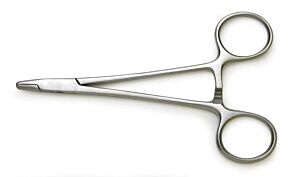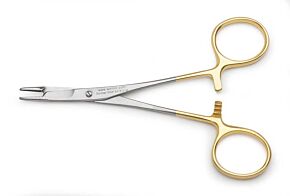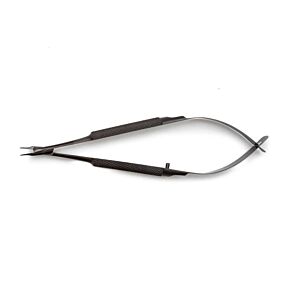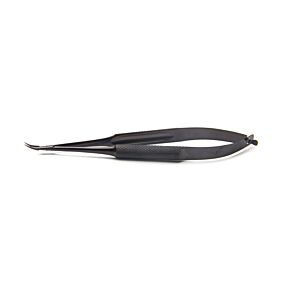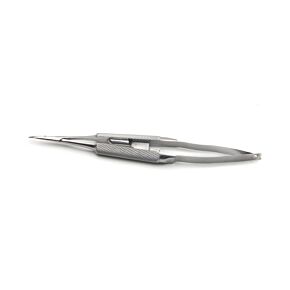This website uses cookies to ensure you get the best experience on our website.
Read more
Wound Closure
Suture instruments are used to ligate, repair and approximate tissue after a surgical procedure.
Needle holders
Needle holders, also known as needle forceps or needle drivers, are used in suturing during a surgical procedure. Needle holders typically have a textured tip for a secure hold. Often they have a ratchet (or other mechanism for locking). Some have tungsten carbide inserts in the tips. Tungsten carbide inserts are more durable than stainless steel, last longer and typically offer a better grip. Tungsten carbide (TC) is harder than stainless steel. Look for the gold handles which designate tungsten carbide inserts.
Titanium needle holders are lighter weight, which makes them easier to use during long procedures.
Choose your needle holders based on the size of the needle you are using, so that they securely hold your needle. The smaller the needle, the smaller the needle holder.
Skin staples
Staples are designed to be non-crushing when they are inserted into tissue. This section includes some of our most popular instruments used to aid in wound closure.
Needle holder care
Replace your needle holders if you notice any of the following:
- Bent tip
- Hairline cracks in the jaws or the joint
- Cracks in the TC inserts
- Light shines through when you hold it in the closed position.
- Loose joint
- Ratchet mechanism fails to hold securely
- Rust cannot be removed
When testing your needle pullers, you should be able to securely hold a hair on your forearm.
-
Olsen-Hegar Needle Holder with Suture Scissors, Tungsten Carbide Inserts
Multiple SKUs$91.00 - $192.00In stockBarraquer Micro Needle Holder, Smooth Curved Tips, Black Coating
Multiple SKUs$133.70 - $163.10In stockhiddenBack to TopClose


